E-Learning App Ideas in 2022: Insights, Opportunities, and Benefits
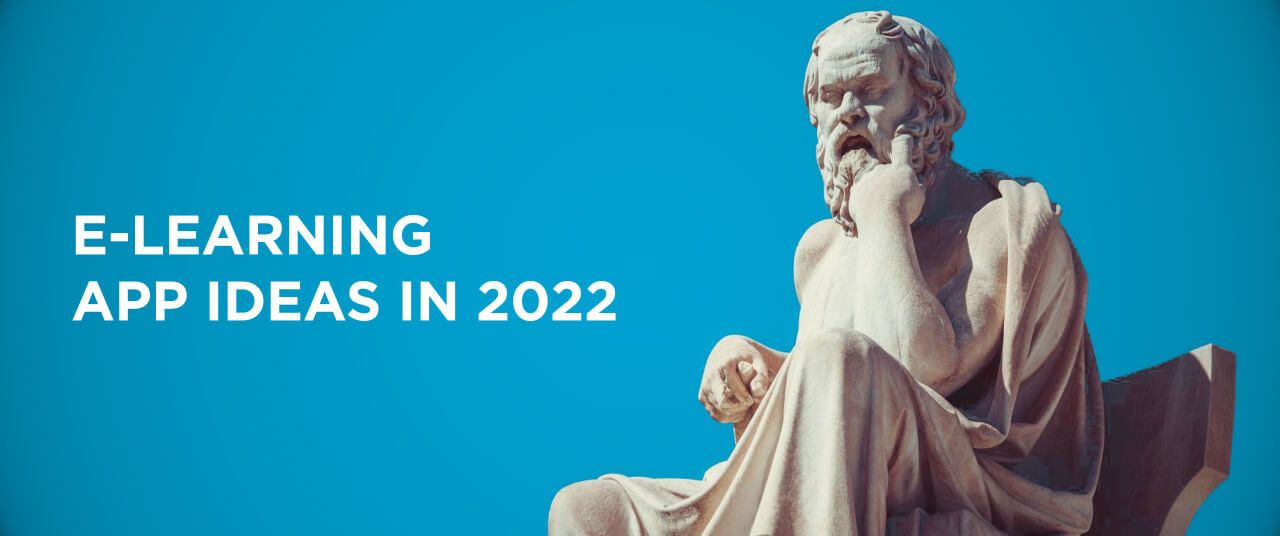
Wondering how to boost your start-up through e-learning app development? We review the best e-learning app ideas in 2022 that will inspire you.
In today’s always connected world, the value of knowledge has skyrocketed, and the ways we obtain it have changed. Without doubt, e-learning is one of the most promising businesses in the global market, which will reach an estimated US$457.8 billion by 2026 and grow by 10.3% over that period.
Now cutting-edge technologies such as virtual reality (VR), augmented reality (AR), artificial intelligence (AI), and machine learning are breaking new ground for e-learning, making it the most compelling new way to improve our minds, lives, and society.
If you are struggling to come up with market-worthy e-learning app ideas, you should read this article to see what edtech solutions you can create. Here we look at educational app ideas that will inspire your start-up to get creative.
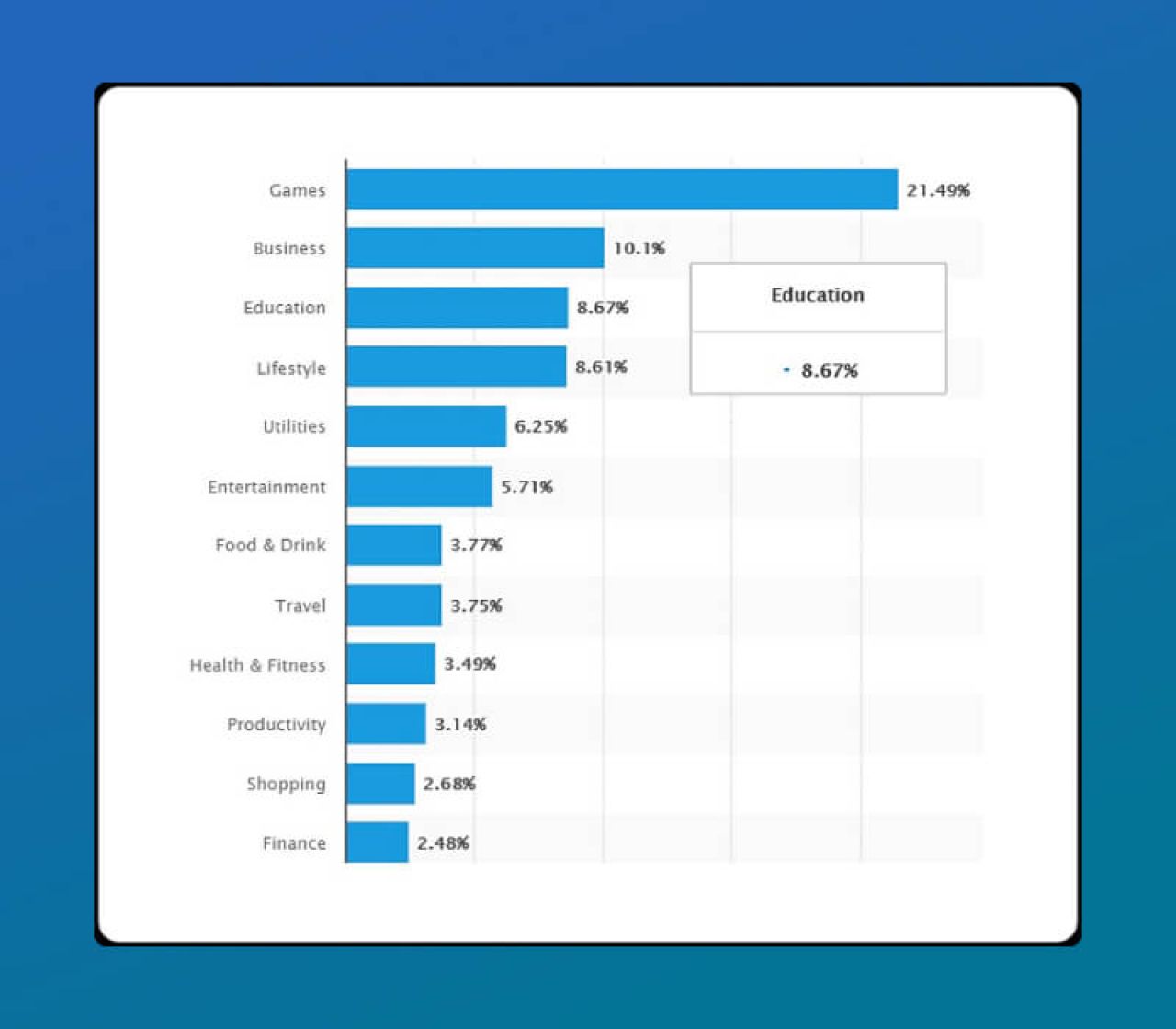
Why Go into E-learning App Development?
The most important thing you should know about e-learning apps is that they are not only used in educational institutions.
In 2020, for instance, 98% of U.S. corporations were using some form of online learning. According to a study of 2,500 global companies, “comprehensive training programs” led to a 218% increase in profits.
Thus, the demand for e-learning mobile app development is constantly growing—a trend which is expected to continue in the coming years.
So, whether you are a start-up or own an existing offline business, e-learning app development will be beneficial for your business. There are different aspects to consider, though—but we’ll save these for another article.
Now, let’s switch to the topic at hand.
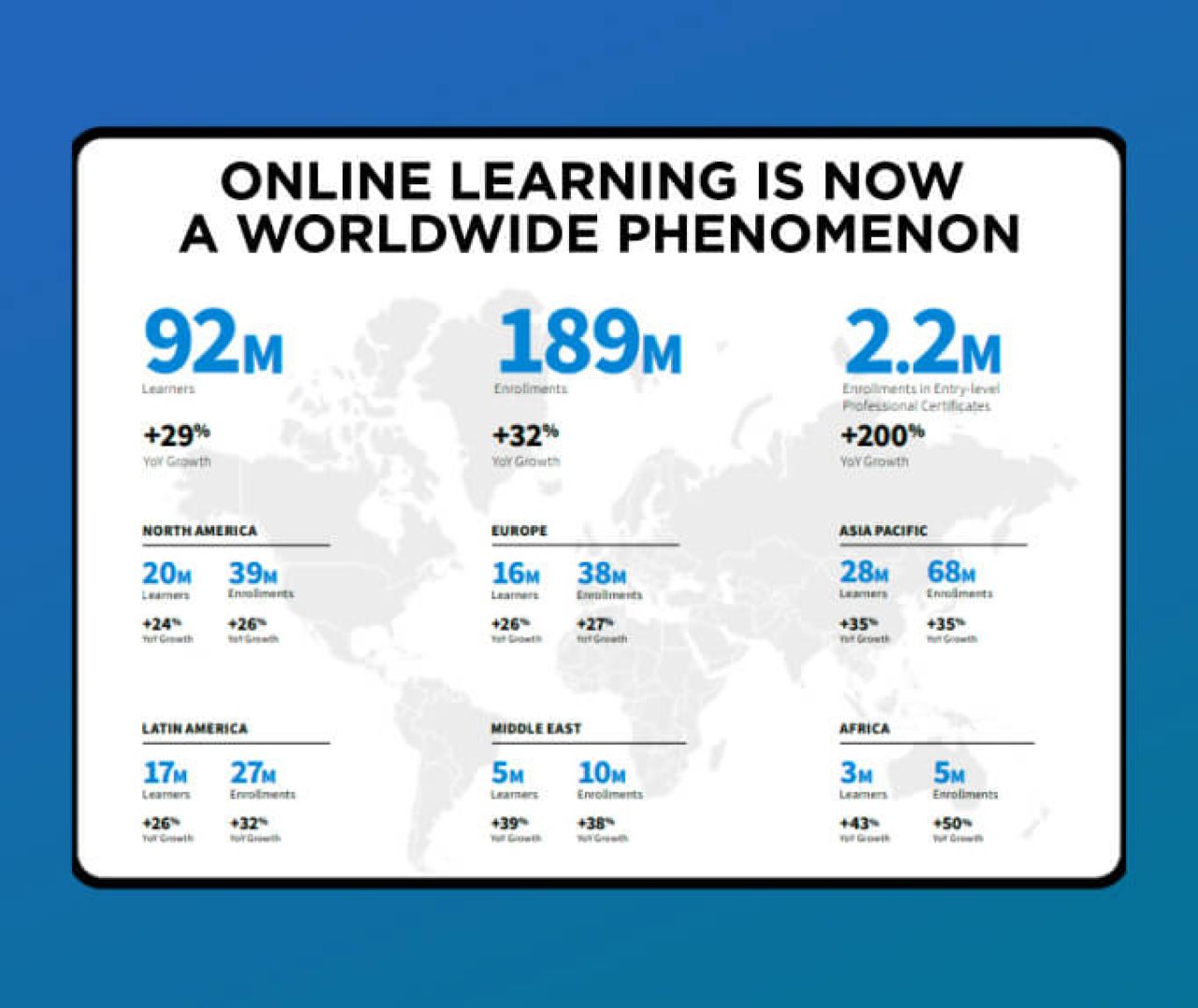
E-Learning App Ideas for Your Start-up
Before starting educational app development, you need to decide what kind of application you want to create. There are three main types of edtech apps — for teachers, preschoolers, and students.
Let’s pass through all the variants one by one.
Educational Apps for Teachers
Educational apps for teachers enhance the educational process. These apps can be used to track student progress and share their assessments with parents to keep them up to date. Also, there are educational apps that allow teachers to schedule classes. These can be divided into sections as set out below.
Classroom Management Apps for Teachers
Many teachers already apply reward systems for student behavior and achievement. In some classrooms, it may be a sticker chart, in others, a color-coding system. General classroom management apps can help students understand their grade level. These apps can also allow parents to monitor their children’s progress in real time.
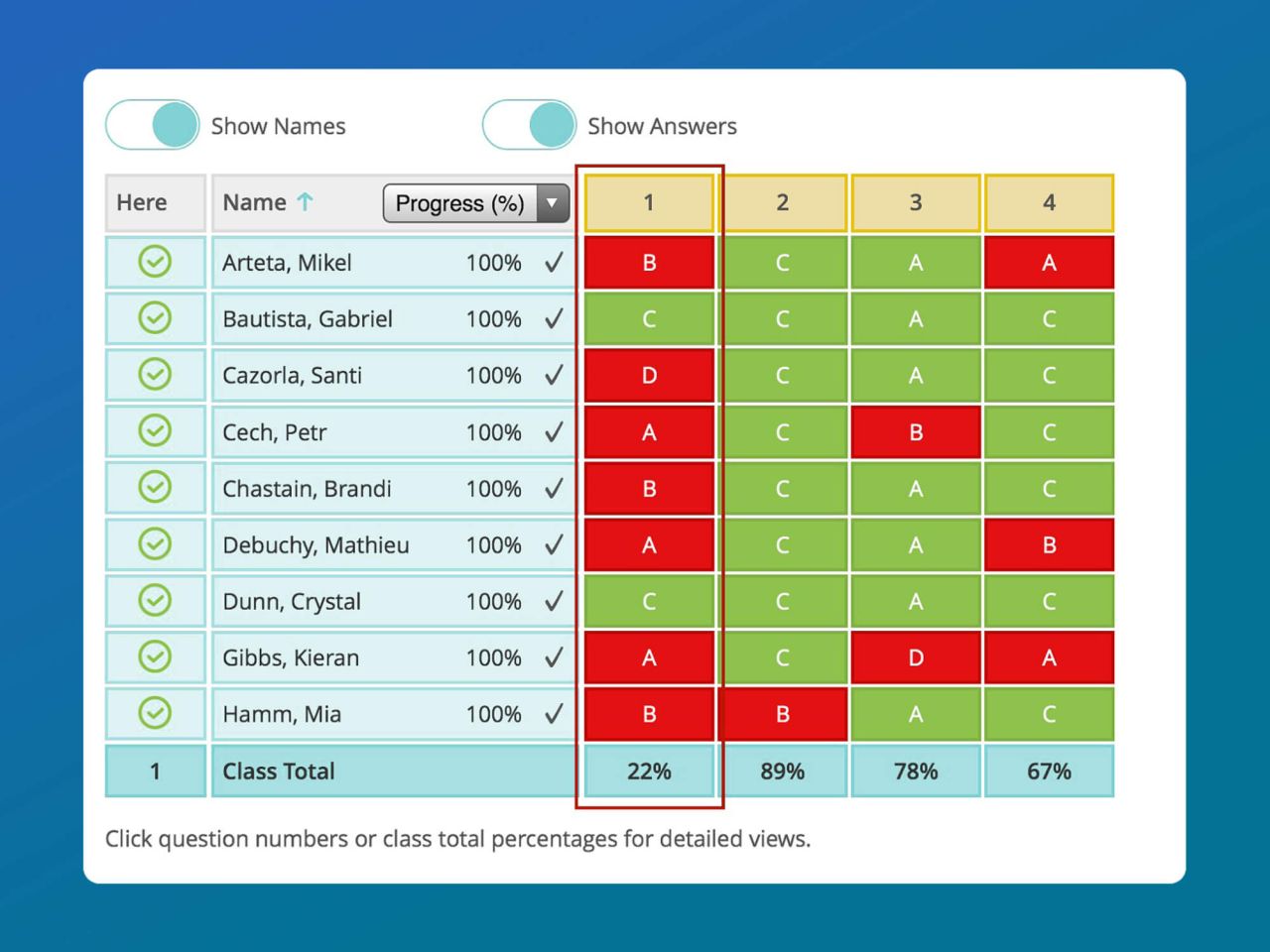
Learning and Assessment Classroom Apps for Teachers
Online assessment tools for teachers are a necessary part of the e-learning experience. If teachers are informed of gaps in their students’ knowledge, they can adjust lessons to address such gaps.
Assessment tools can be formative to shape ongoing lessons, or summative to provide grades at the end of a course.
Quiz Classroom Apps for Teachers
Quizzes are useful for memorizing and recalling facts, evaluating knowledge, or quickly analyzing information at the end of a lesson or speech presentation. There are lots of different apps, websites, and games for quickly creating and conducting anything from quizzes to flashcards. Some are more game-oriented, allowing teachers to set up game-based programs, while others are learning-oriented, facilitating formative assessment.
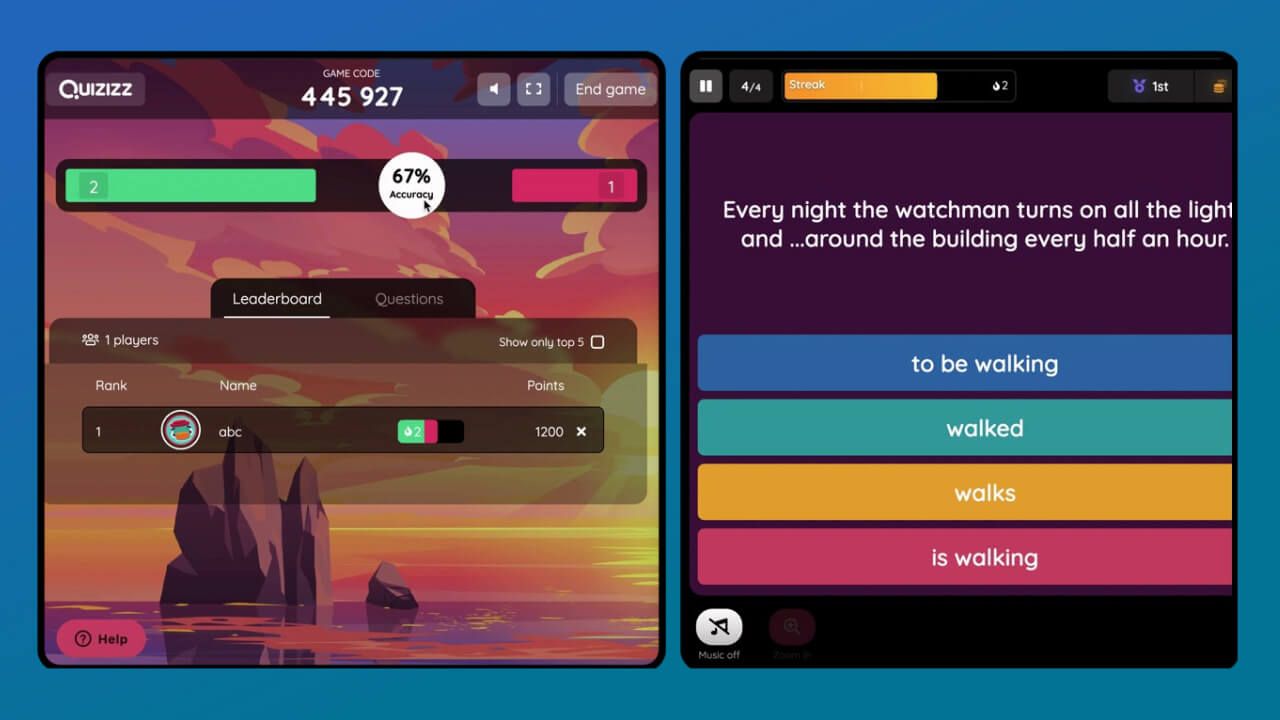
AR Classroom Apps for Teachers
AR opens up unlimited possibilities for classrooms around the world. AR apps allow students to learn more about the real world and help them understand how to put what they learn in the classroom into practice.
And unlike VR, AR doesn’t require expensive devices. All you need is a phone with the necessary app installed on it.
Learning Management System (LMS) Apps
LMS apps are used in educational institutions to manage and track student progress. They are designed to streamline the course and program management process. LMS apps help create and track courses, monitor student enrollment, deliver course content, assess student progress, generate reports, and assist in employee training. According to the data the global LMS market will jump up from the current US$16.19 billion in 2022 to US$40.95 billion by 2029.
A prime example is GoToTraining, which helps deliver online training on the go. GoTo says their app delivers more than 700,000 training sessions each year with more than three million participants.
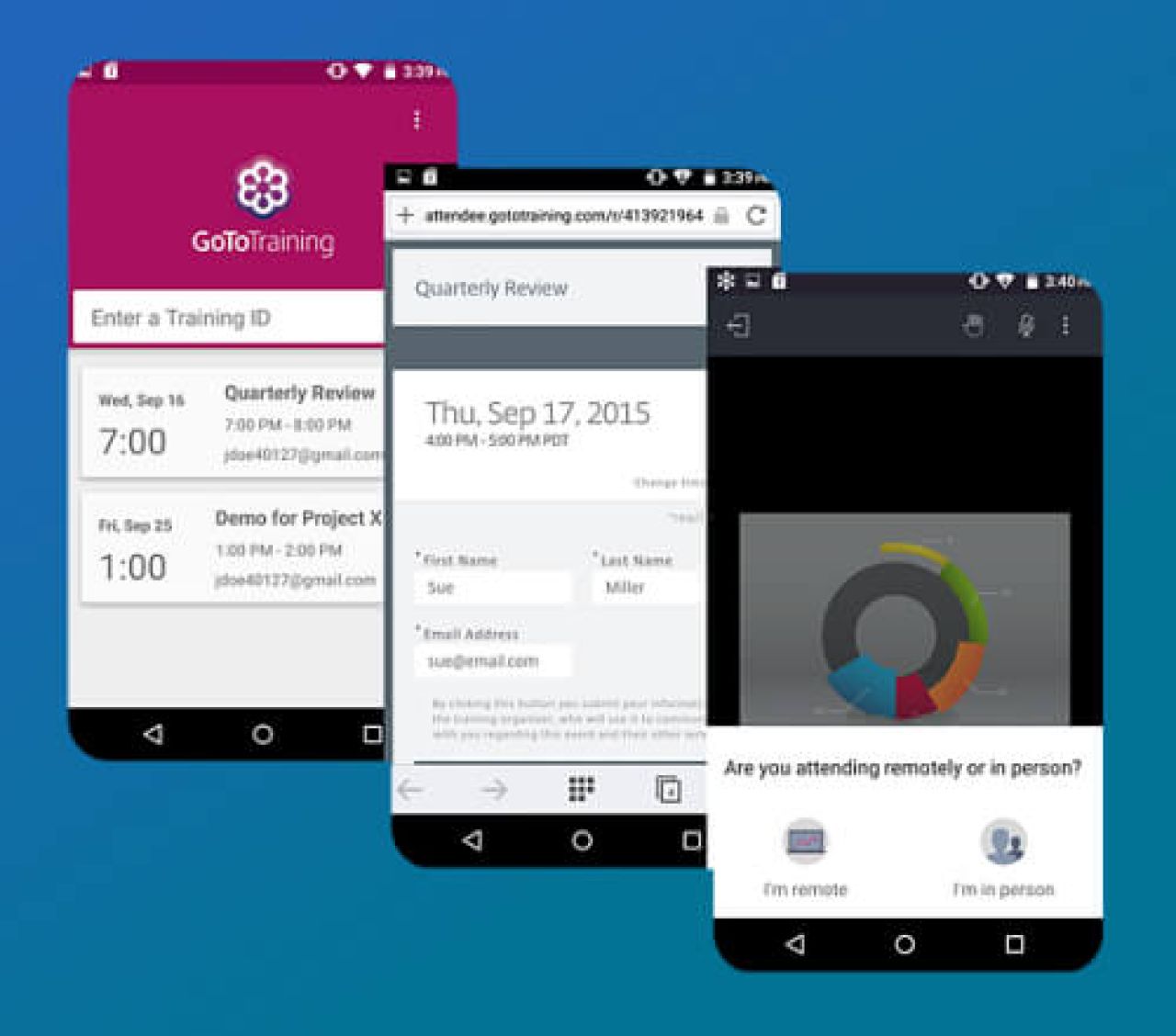
E-learning Apps for Preschoolers
Teaching preschool kids requires a different approach, involving games and engaging activities.
Developing a customized e-learning app can be the optimal solution, as you can add as many special features as you need.
Learning solutions for children foster a passion for learning through gamification and interactivity. Preschool mobile apps can also be used in classrooms to further a kid’s development.
ABCmouse.com is an educational app with 10,000+ engaging learning activities for children of all academic levels that offer an easy and fun way to learn a variety of subjects. The Pocket Worlds app contains a collection of games for learning concepts such as numbers, colors, shapes, and words. The Hopster learning app contains a variety of educational content, from the best TV shows for preschoolers to educational books, games, and music.
E-learning App for Adult Students
E-learning apps for students are fairly widespread among both children and adults, as they make learning engaging. Although there are many educational apps for students, we list below only the most popular ones among users in this sector.
Language Learning App
While learning a foreign language, students should practice all the time. Today, many apps offer fun games for learning new words or watching educational videos. For example, Duolingo allows users to take a test to determine their language level. Based on the results, the app suggests a specific language course. Other apps provide short videos with native speakers, followed by a few new words to learn.
Apps for Online Courses
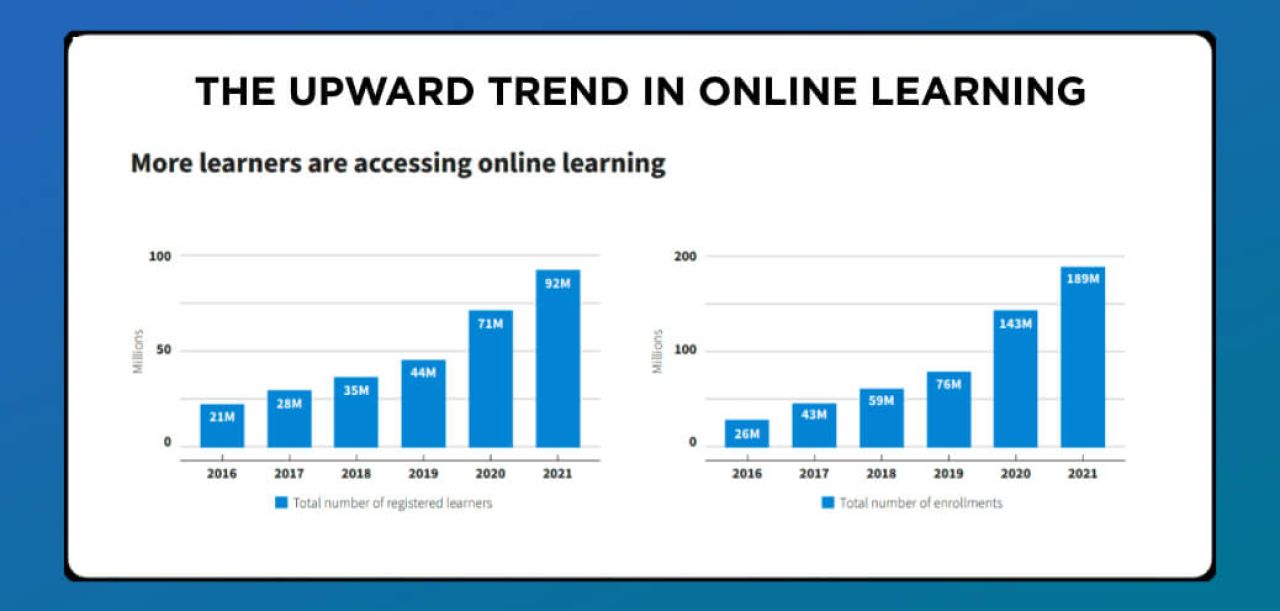
By 2016, 21 million people had registered for Coursera online courses. But the pandemic switch to remote work caused a threefold increase in new registrations, bringing the number to 92 million in 2021. This boost reflects the global recognition of online learning, which is becoming more widespread among remote students, and students from socially vulnerable or remote areas.
One of the world’s most well-known online learning resources, Coursera offers several thousand courses from leading educational providers. Among them are elite universities such as Stanford and Princeton, as well as famous companies such as IBM and Google.
Khan Academy provides its lectures as video lessons and is also quite popular.
While edX focuses primarily on the humanities and sciences, languages and computer science are some of the most popular subjects on the platform.
Note:.These days, more and more companies are understanding the importance of investing in employee education. So, take a closer look at the actual conditions and target your educational solutions to the business.
Exam Preparation Apps
The U.S. exam prep market is projected to grow to US$10.72 billion by 2024, with exam prep analytics tools dominating this market. Exam prep apps can provide academic support, help users study more effectively by tracking and monitoring their progress and results.
For example, BYJU’s Exam Prep, a comprehensive exam prep app, offers a wealth of tests, quizzes, and more. Apps like ExamPrep or GradeUp normally offer practice tests, quizzes, flashcards for memorization, and more. TCY offers many tests such as Mick Tests, Engineering/Medical, MBA/CAT.
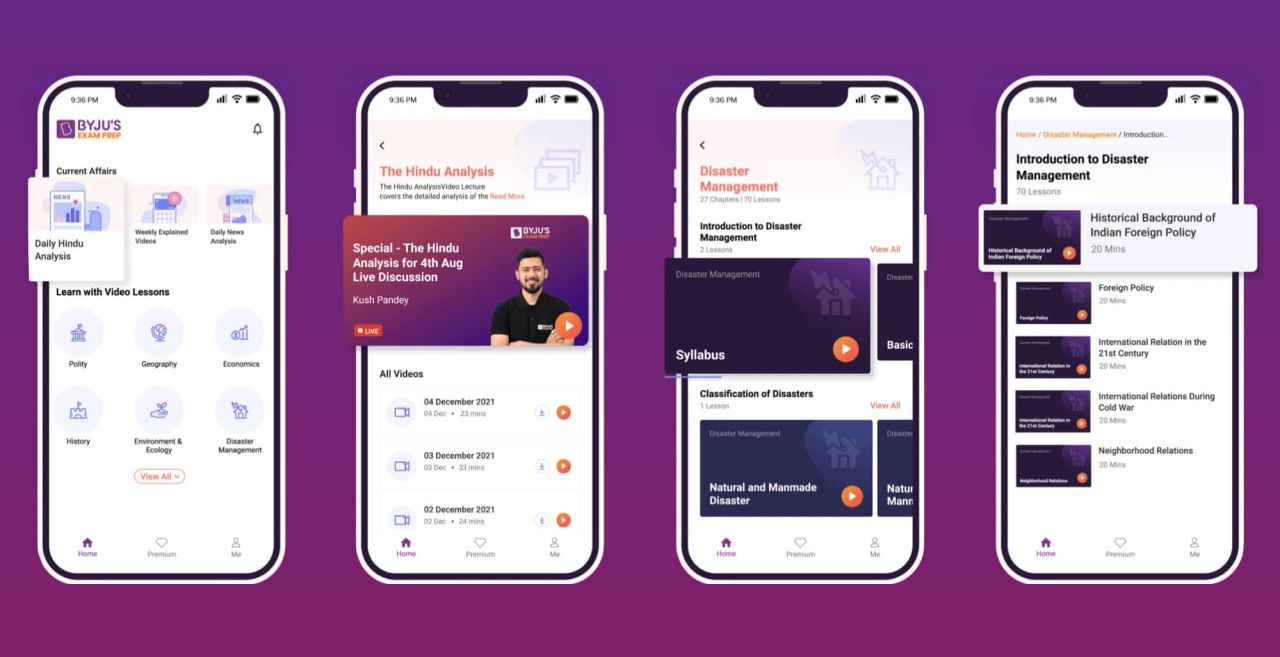
Trends in E-learning App Development
Evolving technology is changing the trends in e-learning, making it more advanced, with businesses competing for users. This section briefly reviews the major trends in the e-learning industry.
VR and AR
Statistics show that global VR and AR markets will grow by US$162.71 billion from 2020 to 2025. Extended reality is driving changes in both real and virtual education. AR enhances personalized learning by analyzing scanned content and placing learning material visually. VR improves visualization and provides immersive learning experiences for students.
Gamification
Gamification allows app developers to improve the boring learning process. Levels, rewards, and progress bars increase motivation and encourage users to make faster progress. Also, leaderboards and other gamification elements can establish a competitive environment that encourages users to keep learning.
For example, Khan Academy offers a Skill Tree feature that visualizes the training subject as a branching tree. So, the user can see the direction of training and their progress in mastering the “skill.”
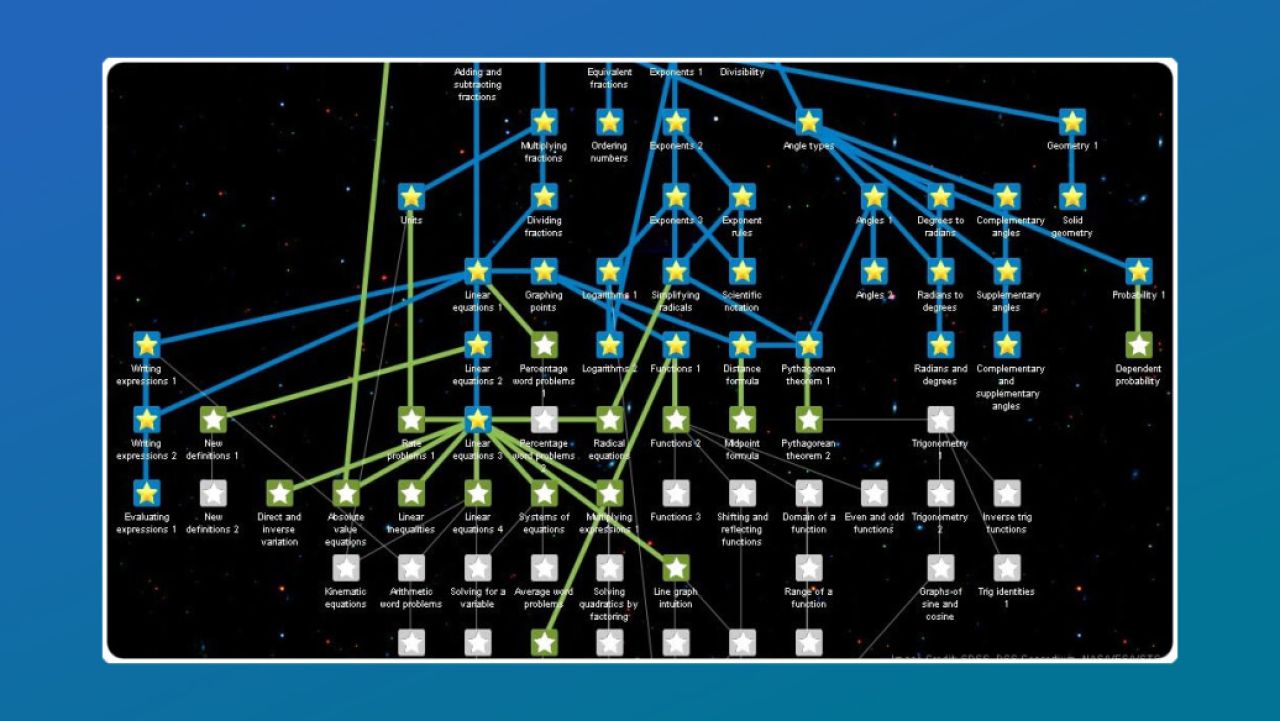
Streaming Video
By 2021, the streaming video market was valued at US$988 million and IT is estimated to reach US$4.290 million by 2028.
Today, videoconferencing facilitates remote learning and makes education more accessible. In addition, individual live class platforms, such as Vimeo or Dacast, are built around streaming video and support multimodal learning. The live interaction between viewers and streamers also makes learning more personal and engaging.
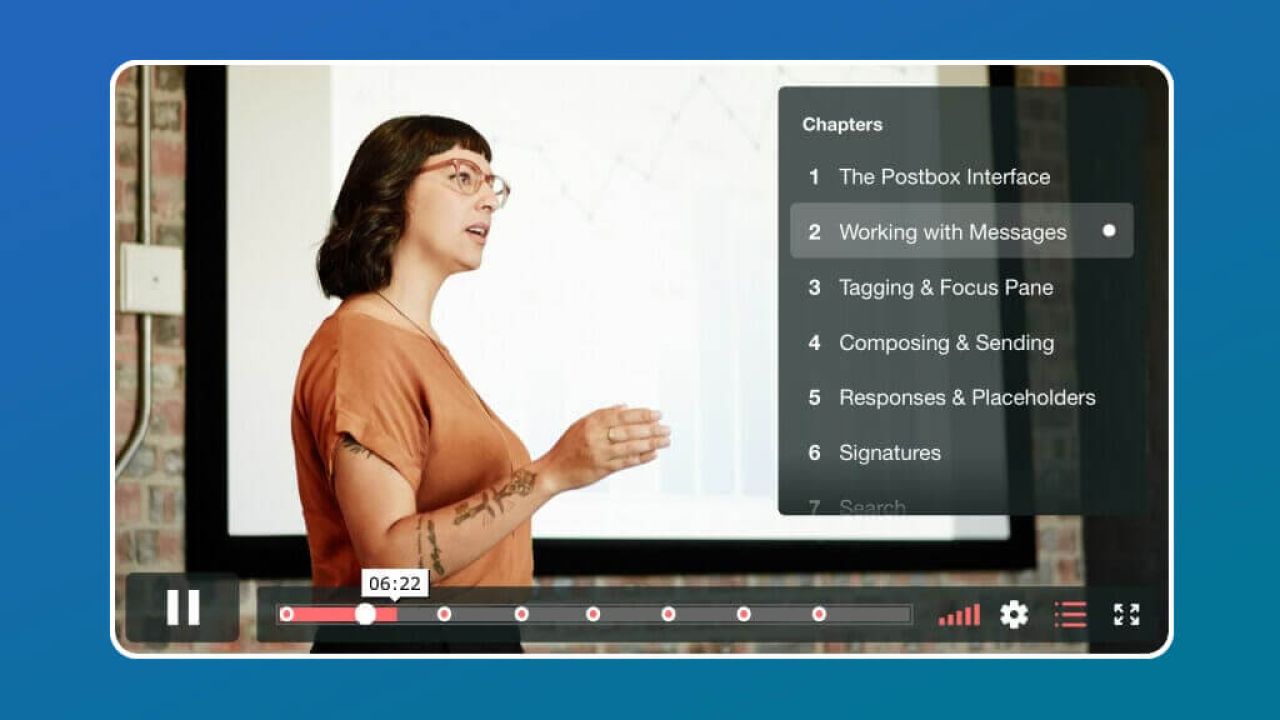
AI
In educational apps, AI algorithms can automate notetaking and grading, generate personalized recommendations, and answer questions with bots.
For example, the ELSA Speak app evaluates the user’s pronunciation and fluency in speech and gives them immediate and detailed feedback.
Social Functionality
Digital education also benefits from social features that allow users to connect and interact with your app, as well as share experiences with other users. For example, education apps can have social media integration to speed up the registration process or allow users to share their achievements online.
Micro Training
Microlearning is a type of course with short interactions that requires briefer attention spans and thus helps keep trainees engaged. It also makes information more digestible and engaging because small units are easier to master. Great examples of microlearning include Duolingo or Word of the Day.
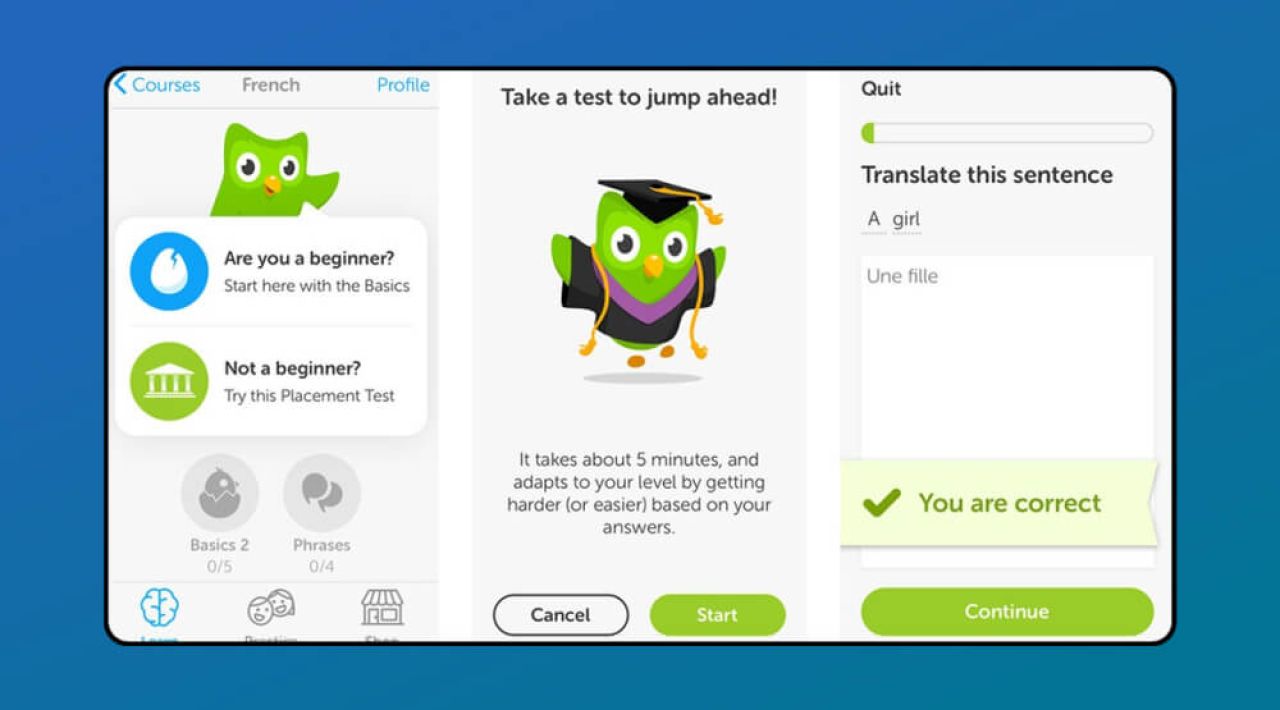
Data-based Improvements
Collecting more relevant data and analyzing it properly allows e-learning companies to offer more customized content and better learning formats to their trainees. This helps boost such companies’ return on investment (ROI).
Have an E-learning Software Idea?
Today, people strive for continuous improvement, which means that the e-learning business will continue to skyrocket. The development of e-learning software will offer you high user engagement and a great ROI.
So, if you have an e-learning app idea, contact us. Our team creates apps from idea to app store launch—and we’ll help you with market research and support of the complete app process.

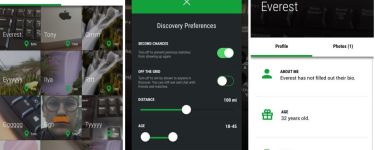



Comments are closed.